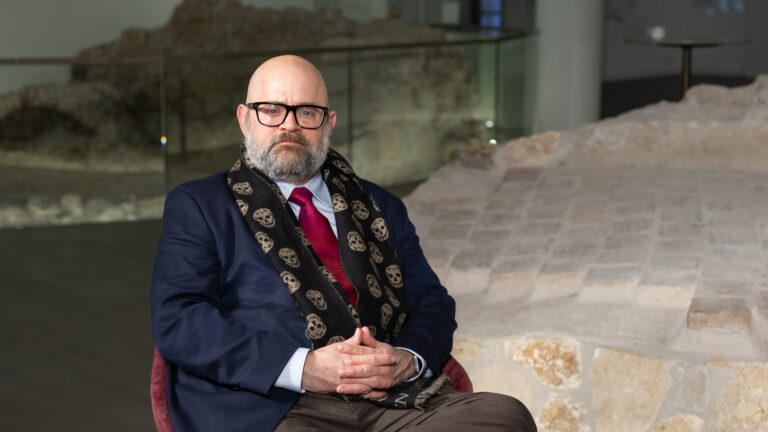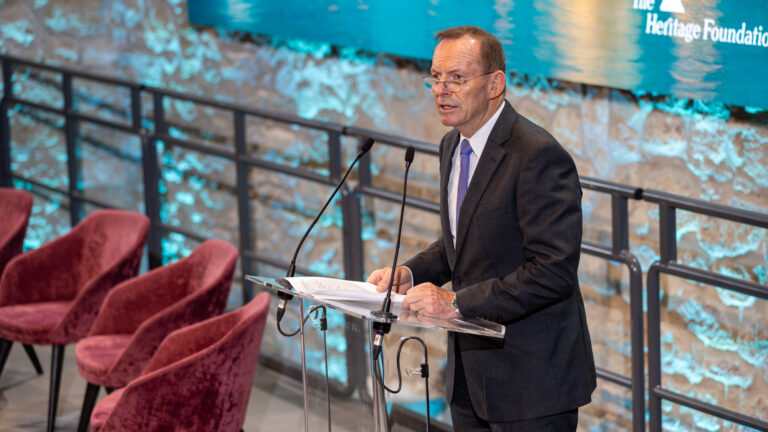Ashley Frawley is a sociologist and a visiting research fellow at MCC Brussels, known for her critical analyses of contemporary emotional culture and the psychological underpinnings of social policy. At the MCC Budapest Summit on the Global Drug Epidemic, she spoke with Hungarian Conservative about how the fusion of woke identity politics, the psychologization of everyday life, and the erosion of shared meaning has contributed to rising fragility and self-medication through drugs.
***
Your work, research and commentary often focus on relation between woke ideology, mental health problems and drug abuse. So my first question is a pretty basic one: how are these things related?
Well, that’s an excellent question. I’m glad that you asked it. I think at the heart of woke ideology is a kind of emotional centredness. There have been longstanding claims that psychological health ought to be on par with physical health—that there is ‘no health without mental health.’ This is a very powerful statement that has been around for quite some time. And it erases extremely important distinctions.
If you slap me across the face, it’s going to hurt regardless of what I think about it. But if you insult me, it really depends on how I interpret it. I can say: ‘Oh well, this person is a bit crazy, whatever,’ or I can respond in all sorts of different ways. And actually, to a certain extent, physical pain and the experience of something—the meaning of it—derives from the entire situation around it, from the context.
But what we wind up with is a kind of model of human nature and society that is less human and more like a lab rat. If you do studies on lab rats, you might have a stimulus–response kind of experience: the rat goes to the marshmallow, gets an electric jolt, and doesn’t like marshmallows anymore. Human beings aren’t really like that. Yes, to a certain extent we are, but not fully.
Where do you see this emotional centredness having the most tangible real-world consequences?
If a human being sees a torture device, you might think the natural response is fear. But what if you are a deeply religious person being persecuted for your religion? You might feel a sense of nirvana looking at that; you might feel deep peace knowing that this torture device is your pathway to salvation.
So placing emotional, psychological, and physical health on the same plane, and erasing the distinction between them, has been a powerful aspect of woke ideology. If you hurt me psychically, this becomes an actual form of violence—and then the response can be violence. We have seen this with trans ideology, where a speech act becomes a form of violence by ‘denying’ a person’s identity, and because this is ‘literal violence’, it invites a violent response. Because these things are treated as the same.
It also discourages people from reflecting on their experience and consciously choosing to act differently. It becomes a stimulus–response model: you are conditioned, or rather, invited to conceive of yourself as damaged. Human beings live in a moral universe. How we respond to things depends on how we interpret them. If you are brought up in a world that says words literally hurt you, then that becomes a self-fulfilling prophecy.
Now, when it comes to drugs, I think that this psychologization of the world feeds into drug use. If you live for nothing beyond yourself, if you believe that well-being is the end goal of life, then you cannot suffer for anything. I always draw on Viktor Frankl’s Man’s Search for Meaning, where he says you have to live for something beyond yourself. As human beings, you must have some kind of meaning and purpose beyond yourself—not because it makes you happy, but because it makes your suffering worthwhile. You need to impute your suffering with meaning. If you cannot do that, then you are lost.

Yesterday we heard from Stuart Derbyshire the example of Vietnam veterans who were addicted to extremely physiologically addictive drugs while in Vietnam. When they returned to normal society, 80 per cent of them kicked the habit. Why? Because they re-entered a world of meaning, where they had a purpose, where they slotted in.
Today we have a loss of meaning. We struggle to feel that you should live for something beyond yourself—for a family, for responsibility for the next generation, for some larger project. Instead, wokeness places the self and feelings at the centre of the universe. Paradoxically, this makes us far more fragile and far less resilient. So I think this centralizing of emotion is one of the factors that leads to people being lost.
Now, I wouldn’t say it’s the only factor. There are deep problems in society that make people more likely to get lost, that undermine these projects. You’re supposed to have a mobile workforce that goes where the work is. You have the two-body problem—if you’re married and you both work, it’s very hard to be mobile, and this rips apart families. So there is a broader context. But I do think psychologization has made us less resilient, and that this is a big part of wokeness and of self-medicating with drugs.
The example of Vietnam veterans is particularly interesting, because I think we could apply a similar analogy—returning to normal society, re-entering a world of meaning—to the way Western societies are beginning to reject wokeism and move towards normality. This is clearly happening in the United States and, to some extent, in parts of Western Europe as well. Do you think this could lead to effects similar to those observed among the veterans, such as a decrease in drug abuse?
No, absolutely not. Because wokeism is a symptom of a broader crisis. It is a symptom of the collapse of politics—any kind of future-oriented politics beyond the self and identity; a politics of world-building; a politics that sees the human footprint on the Earth as something other than a negative. Instead, we have a politics of holding back, of ‘building’ that happens only in people’s heads instead of in the world.
We have lost the industrial spirit—the belief that the future can be better than today. We have a powerful sense of cultural pessimism, a powerful misanthropic ethos: the belief that human beings are a plague on the planet, that we are weak and irrational, that the Enlightenment was a mistake, and so on. Wokeism is a symptom of that. It is not a cause.
Governments have contented themselves with managing decline. They don’t believe in the dynamism of societies. They don’t think it is possible. They think that the task history has given them is to manage the slow decline of Western civilization. Wokeism is a symptomatic politics of that decline.

So what do you think the solution is?
Well, it would be exactly what I said: to have the kind of hubris that demands a better future, that refuses to be content with ‘you have to accept less.’ This idea that ‘this is just the way things are,’ that we destroy our planet, that the human footprint is a negative thing.
It is possible to create a better future. We have a world in which technology has allowed us to feed every single person on the planet, to house every single person. We don’t need to manufacture clothes anymore—we already have enough for eight generations. We have the possibility to create abundance for everyone. The future could be freer and better.
But we have developed a morality of low expectations: that it is wrong to want more. On the other side, we have hedonism: ‘the world won’t get better for everyone, so I’ll carve out my tiny existence of video games and pot.’ That too is symptomatic of the loss of responsibility for the future and for the next generation.
We need a politics of world-building. We need optimism about the material world improving. We cannot allow people to morally blackmail us into accepting decline as ‘sustainability’ or as ‘multiculturalism’. Because what is actually happening is that those in power are importing enormous numbers of immigrants because it is cheaper—so they think—and because these people will be a mobile workforce, whereas you want too much, you have a family, you are ‘stupid’, you are ‘trapped in patriarchy’ because you won’t move for work since your family ‘holds you back.’ And anyway, they say, you’re bad at raising children, so why bother.
We need a bigger world-building idea in our politics. We need to break out of the stupor of decline that has characterized our politics for so long.
Read more of our interviews:






